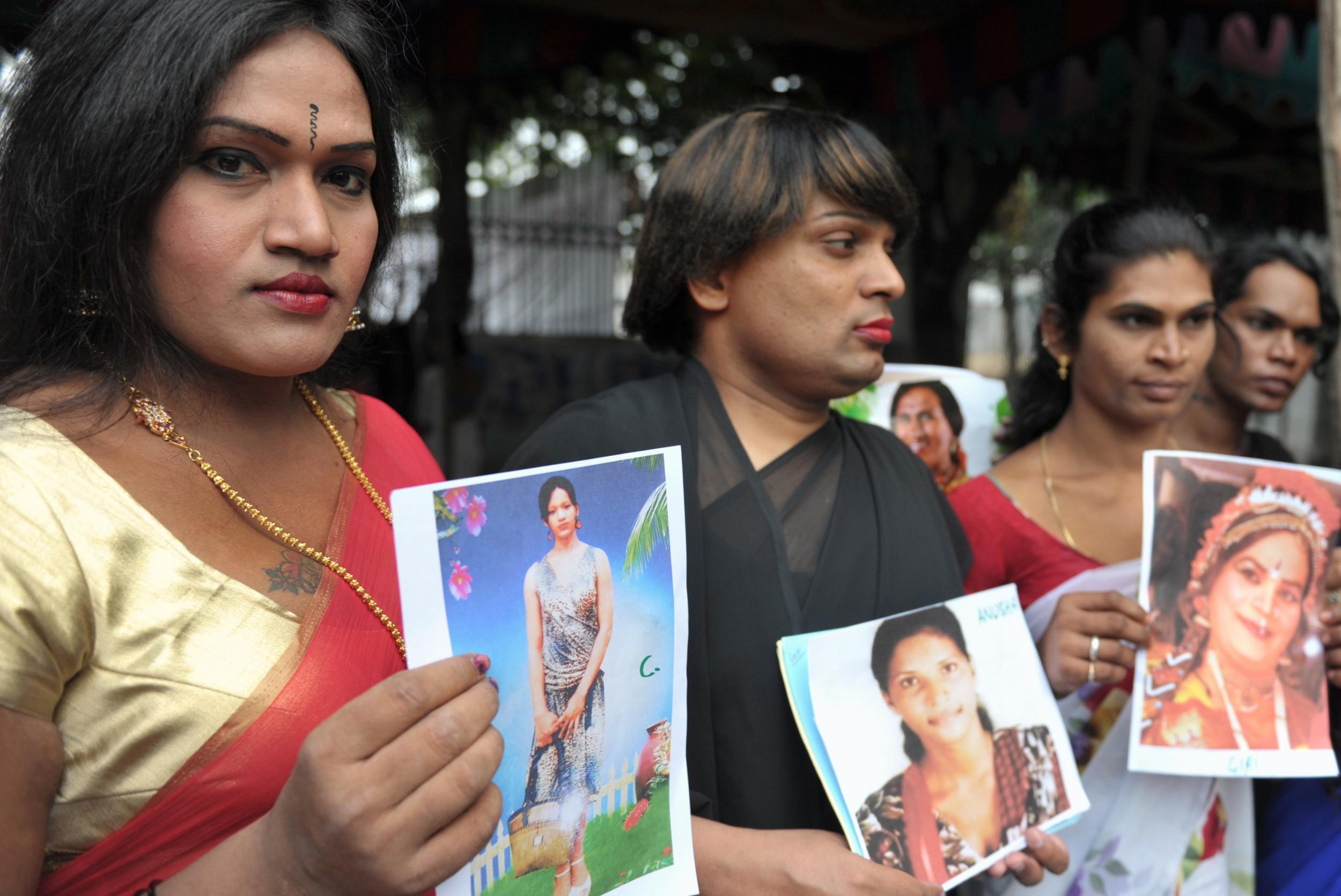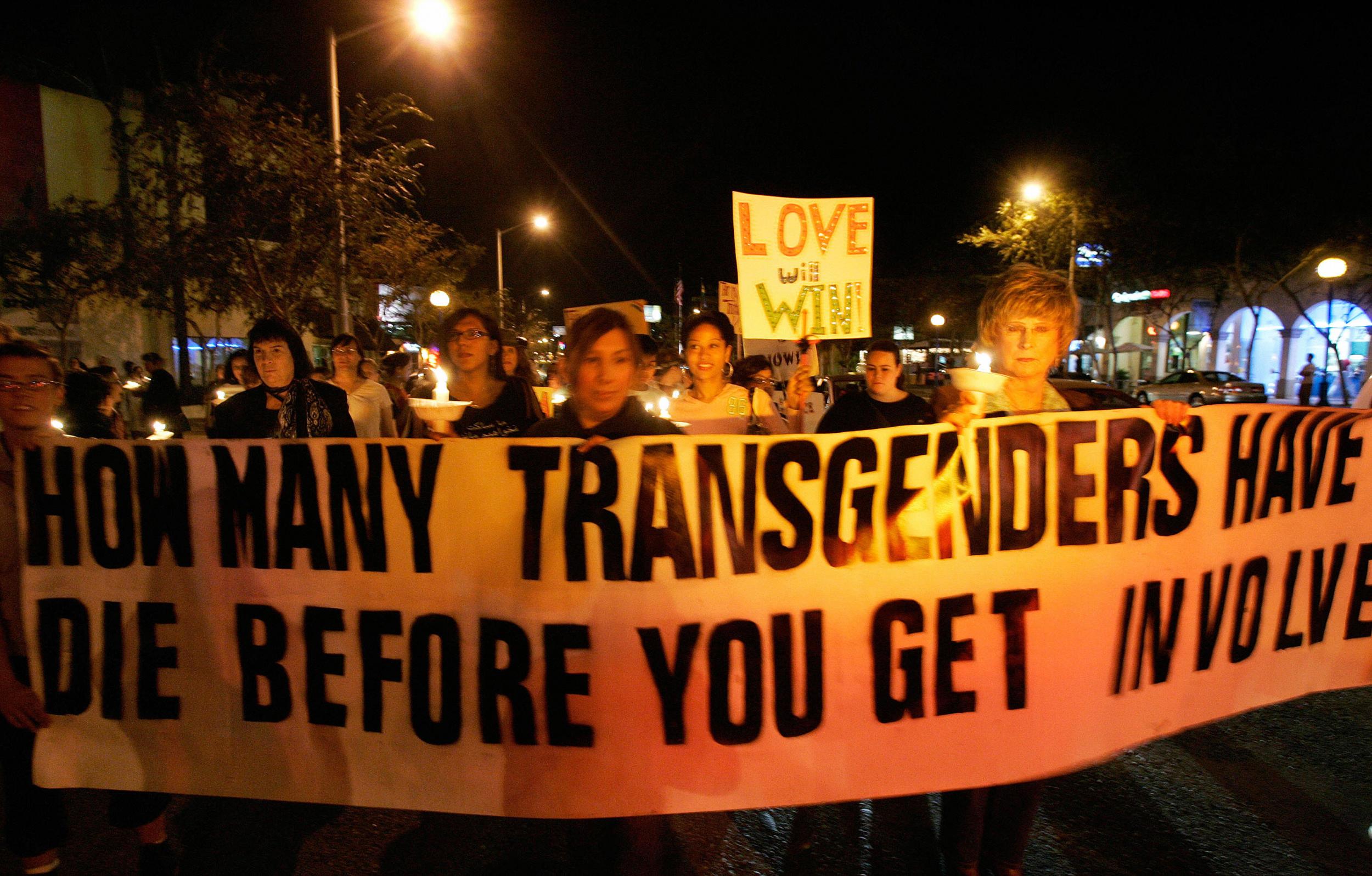Transgender Day of Remembrance: When is it and why does it take place?
This annually observed day honours those whose lives have been lost to transphobic violence

Your support helps us to tell the story
From reproductive rights to climate change to Big Tech, The Independent is on the ground when the story is developing. Whether it's investigating the financials of Elon Musk's pro-Trump PAC or producing our latest documentary, 'The A Word', which shines a light on the American women fighting for reproductive rights, we know how important it is to parse out the facts from the messaging.
At such a critical moment in US history, we need reporters on the ground. Your donation allows us to keep sending journalists to speak to both sides of the story.
The Independent is trusted by Americans across the entire political spectrum. And unlike many other quality news outlets, we choose not to lock Americans out of our reporting and analysis with paywalls. We believe quality journalism should be available to everyone, paid for by those who can afford it.
Your support makes all the difference.Transgender Day of Remembrance takes place on 20 November every year to honour the transgender and gender non-conforming people whose lives have been lost to acts of transphobic violence.
It was established in the US in 1999 by the trans advocate Gwendolyn Ann Smith as a vigil to honour Rita Hester, a trans woman stabbed to death in 1998 at the age of 34. Since 2008, an annual report has been published detailing the trans people who have been killed.
Why do transgender people have their own day of remembrance?
Trans and gender non-conforming people continue to experience unprecedented levels of violence, particularly women of colour who are disproportionately represented in annual homicide rates.
The 2018 Trans Report by the LGBT campaigning organisation Stonewall revealed that more than a quarter of trans people (28 per cent) had faced domestic violence from a partner in the past year, one in eight (12 per cent) had been physically attacked by colleagues or customers in the past year and two in five (41 per cent) had experienced a hate crime or incident in the last 12 months.
In June, the American Medical Association highlighted the rising violence against trans people in the US, describing it as “an epidemic”.
The leading body warned that “the physical risks faced by transgender individuals can have long and short-term negative impacts on the physical and mental health of these individuals, survivors, their communities, and the nation as a whole.”
How many people have been killed in the last year for being trans or gender non-conforming?

According to Transrespect Vs Transphoba Worldwide (TvT), a project monitoring the number of trans and gender diverse people killed globally, 331 people were killed between 1 October 2018 and 30 September 2019 because of their identity.
Activists note that this figure may be higher due to under-reporting.
“In most countries, data on murdered trans and gender-diverse people are not systematically produced, and it is impossible to estimate the actual number of cases,” notes TvT.
"Trans and gender-diverse people are victims of horrifying hate violence, including extortion, physical and sexual assaults, and murder."
The majority of murders occurred in Brazil (130), Mexico (63) and the US (30).
Only one person, Amy Griffiths, was counted in the UK.
Since the report began in 2008, 3,314 murders in 74 countries have been recorded.
What happens on TDoR?
Around the world, transgender people and their allies often meet for a vigil to remember the names of those who been murdered. A nominated person often reads out a list of all those whose lives have been lost.
What can I do to help?
The Independent recently asked trans people what they wanted people to know about their lives. Trans activist, advisor and director Fox Fisher highlighted the importance of allies and encouraged people to "call out transphobia" when they witnessed it. Writer, model and campaigner Paris Lees asked people to "stop demonising the majority of trans people based on the actions of an extreme minority", while director, columnist and advisor Owl Fisher simply asked for "respect".
Others have asked for donations to trans-led organisations or to actual trans people, adding “do something that helps those of us who’re still here”.
Another person suggested that today was a good day “to reach out and show your support and love” to any trans people in your life.
If you need information or support, contact the following trans organisations in the UK: cliniQ, Gendered Intelligence, Galop and Switchboard
Join our commenting forum
Join thought-provoking conversations, follow other Independent readers and see their replies
Comments